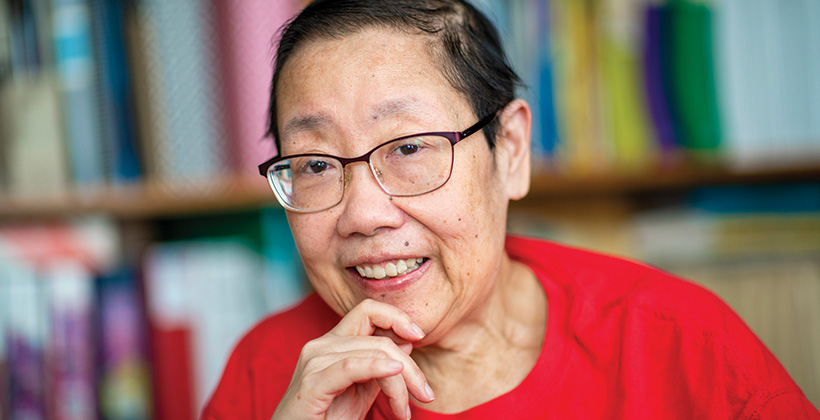COVER STORY
Charis Eng, MD, PhD
Interview By John Soeder
Photo: Lisa DeJong
“You need stick-to-itiveness, because even if you have the best idea, the world might not be ready for it. Today, my patients and their families inspire me to do good research, to pursue research-based evidence to help them.”
Charis Eng, MD, PhD
Listen to Dr. Eng’s thoughts on innovation in her own words.
Innovation isn’t limited to commercialization. Innovation is much broader. It’s a new idea, a new method or a new device for the greater good.
To be innovative, you need an innovative hard wiring — geneticists would call it genotype — and it has to be nurtured by your environment. My parents always encouraged me to think differently. I do the same for the trainees in my lab.
You have to be creative. Young children are a good example. They’re closer in age to the genetic event of birth, when creativity flows more naturally. They haven’t been nurtured to inhibit creative thoughts, which are usually crazy, right? Eventually, the environment often encourages them to conform.
Fortunately, I had mentors like the late Ed Garber, who taught genetics at the University of Chicago. He was all about freeing your mind — there is no such thing as a crazy idea. From history, Marie and Pierre Curie are role models of mine. When they had an idea, they stuck with it.
You need stick-to-itiveness, because even if you have the best idea, the world might not be ready for it. Today, my patients and their families inspire me to do good research, to pursue research-based evidence to help them.
I do my best thinking in a quiet environment, usually at home. An idea might come to me anytime. Sometimes when I’m cooking. Scientists are usually good cooks, probably because we like to experiment. I’m innovative in the kitchen, too. I like to do hybrid foods — a combination of Chinese and Italian, for example.
I might listen to a lecture or read an article about something completely out of my field, but it can still spark a thought that I can adapt for my research. Innovation isn’t confined by arbitrary boundaries.

Charis Eng, MD, PhD, is the inaugural Chair of Cleveland Clinic’s Genomic Medicine Institute. She holds the Sondra J. and Stephen R. Hardis Endowed Chair in Cancer Genomic Medicine. An expert in genomics-informed precision healthcare and population health, Dr. Eng is an elected member of the National Academy of Medicine and the author of more than 500 peer-reviewed articles. She was the first to show that alterations in the cancer-fighting gene PTEN predispose not only to cancer but also to autism.